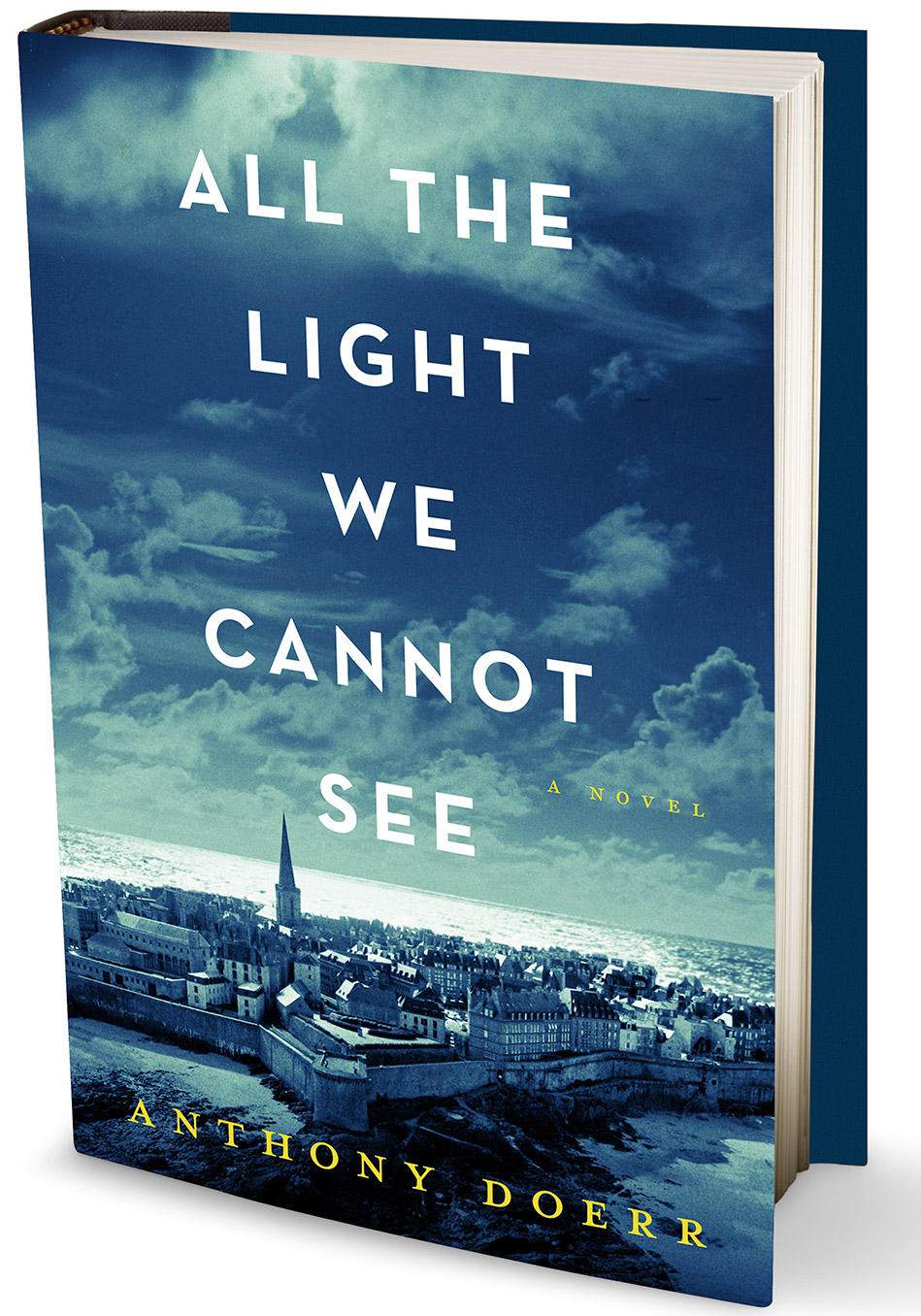All the Light We Cannot See, by Anthony Doerr
In 1934, six-year-old Marie-Laure’s eyesight fails and she becomes completely blind. She lives in Paris with her father, the principal locksmith for the National Museum of Natural History. Marie-Laure is a smart, inquisitive girl, and spends all day at the museum with her father, accompanying him on his rounds or spending the afternoon in one of the laboratories where her quick fingers still learn of the mysteries of the world. Except for Tuesdays, when the museum is closed. On those days she and her father sleep in, then drink coffee “thick with sugar” and roam the streets of Paris.
In 1934, Werner Pfennig lives with his little sister Jutta in a small orphanage in Zollverein, a coal mining complex outside Essen, Germany. He is seven and small for his age, inquisitive, and good at making things with his hands. He is full of questions for Frau Elena, the kind-hearted nun who runs the orphanage. Life is hard, but Frau Elena encourages Werner, telling him to dream big, that he is destined for great things, even though everyone knows that boys from the orphanage only have one option when they turn fifteen – they will end up in the mines. The same mines that killed Werner’s father.
All the Light We Cannot See chronicles the stories of these two children from 1934 through August 1944, when the effects of the war force their paths to cross. Marie-Laure evacuates with her father from the bombing of Paris to live with an uncle in Saint-Malo, harboring a valuable secret of which she is unaware. Werner, like so many boys in Hitler’s Germany, is caught up in the tides of war. We see both these children, so bright, so full of promise, doing their best to make their way in a world that promises so much and delivers so little.
The book is written in snippets, mostly alternating between Marie-Laure and Werner’s points of view, jumping around in time. Sections are rarely more than a few pages; many less, often painting a picture as much as telling a story. When the children are young, even in the gauntest of circumstances there is a sense that the world still holds the potential for great beauty, that there are mysteries to be explored.
Each child has someone who supports them and urges them to look beyond their closed experiences. For Marie-Laure, it is her father, who spends countless hours carving scale models – first of Paris, then of Saint-Malo – that meticulously recreate the physical world in which she must move. She learns the streets outside her front door, can determine how many park benches, how many door moldings and storm drains will take her to the bakery or the park. While she never roams alone, this knowledge gives her confidence, allows her to lead instead of mindlessly follow.
Werner has the encouragement of Frau Elena and the love of his little sister to bolster his boundless curiosity. When he is eight he finds a broken radio and eventually fixes it, opening a new world to the children – beautiful music, newscasts, plays. He continues to study the radio, scouring Essen’s trash heaps for scraps that will extend the reach of the small machine. Eventually, word gets out that he has a gift, and others in town bring him their broken radios both big and small. Werner studies them and then fixes them. He begins to believe that this talent may keep him from ending up in the mines.
But the war – oh, the war. First just rumblings, then strident voices, then lives upturned and a tide of violence that cannot be stemmed. War is hard enough to fathom when one can comprehend ambitious politics and national ideologies, but when war is seen through the eyes of children, it becomes even more devastating.
The story of Marie-Laure and Werner is a delicate, intricate tale that deserves to be experienced along with the machinery and the theater of war. For every stirring speech, for every patriotic hymn, for every bracing call to defend country and home, there are youngsters like Marie-Laure and Werner who pay the price for such pontifications. All the Light We Cannot See forces us to confront their often neglected spectrums of possibility, and though them, we learn. This is a story that should not be missed.
—Sharon Browning

